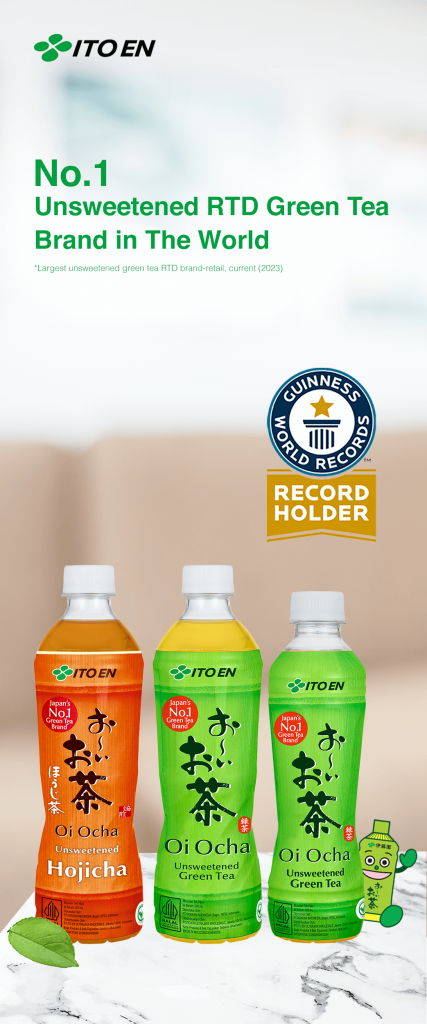Who among you doesn’t want a long life? Not only long life, but also want to live a healthy life to old age, right?
Based on data from WHO1), in 2019 the average life expectancy of the Japanese population was 84.3 years, which is the highest number in the world! Meanwhile, Indonesia is ranked 115th in the world (out of a total of 183 countries surveyed) with a life expectancy of 71.3 years.
There is also another indicator called the average health life expectancy (HALE) where the Japanese population is 74.1 years and this is also the highest ranking in the world, where Indonesia reaches 62.8 years. This means that at the age of 71.3 years, the average Indonesian population has passed away, at the same age Japanese residents still enjoy a healthy life for up to 3 more years!
Why do the Japanese people continue to be healthy and live a long life? Many articles have reviewed this, from the point of view of diet, lifestyle and social interaction in the community. This article will focus more on the first point of view. So, what kind of diet do they apply? Discover the secrets of the Japanese longevity “bonus” diet below!
Lots of Fish and Little Red Meat
A diet with less intake of red meat but lots of fish meat is thought to reduce heart disease. This is due to the high levels of saturated fatty acids in red meat and healthier unsaturated fatty acids in fish meat.
Soybeans everywhere
Soybeans, a source of vegetable protein that are rich in isoflavones, have properties to reduce the risk of heart disease, cancer and stroke.
Like most other Asian nations, the Japanese also consume a lot of soy foods and drinks. Edamame (boiled soybeans), tofu (tofu), okara (tofu dregs), natto (fermented soybeans) are examples of healthy foods made from soybeans, which are consumed by Japanese people by simply boiling or steaming. Try to compare it with those of you who may also consume a lot of tofu and tempeh, but try to be honest with yourself, how much and how often do you eat boiled / steamed tofu?
The soy sauce and miso seasonings that are widely used in Japanese cooking are also made from soybeans, marketed at different levels of salinity to help those on a low-salt diet.
Drink Green Tea without Sugar
Since being brought from China in the 1200s, for centuries the Japanese have been accustomed and regularly consume green tea, which has contributed to the longevity of this nation. After research, green tea contains many antioxidants which can make regular drinkers live a long life and avoid various diseases. Other benefits of green tea are that it can reduce the risk of cancer, cardiovascular disease, diabetes and degenerative diseases. For those of you who want to know more about the benefits of green tea, you can read our other articles on this site: 5 benefits of green tea as a healthy drink for itofriend.
Nearly 100% of Japanese people drink green tea without sugar, aka plain tea. Without the presence of sugar or other sweeteners, the taste of the whole tea is more enjoyable. This nation knows that the unique and rich flavor of this tea will be covered by the strong sweetness of sugar.
One more “disadvantage” if you drink tea with sugar. Have you ever experienced this: After drinking sweet drinks, a taste stuck on your tongue, as a result you still want to drink water afterwards? The cause could be sugar.
Apart from these pleasures and sensations, the biggest bonus of drinking green tea without sugar is, of course, a reduced risk of developing diabetes and obesity. It is not surprising that the posture of Japanese people is slim.
Lots of Colored Vegetables
Japanese cuisine in general contains a lot of vegetables, both cooked and raw (salad). They also add a wide variety of other vegetable sources to their diet, such as mushrooms, fermented vegetables (pickled radishes, kimuchi, pickled plums) to various kinds of seaweed (from nori, wakame, hijiki, konbu and others). They also recognize a balanced diet based on color, that is, every day you should consume food / drinks in color. We’ll be posting articles dealing specifically with color-based diets on this site.
Finally, we also try to compile various articles from the internet as below, for further reading. Everyone lists drinking green tea as one of the secrets to longevity. So, have you guys been drinking green tea today? Remember, the most important thing is that if you drink green tea, DO NOT add sugar! Bcoz, life is sweeter without sugar.
- 10+ Japanese Secrets to Longevity. Not just a long life, but also the healthiest and most active
https://www.hipwee.com/feature/10-rahasia-panjang-umur-orang-jepang-bukan-sekadar-hidup-lama-tapi-juga-paling-sehat-dan-aktif/ - Want Long Life? Context 5 Japanese Healthy Lifestyle
https://food.detik.com/info-sehat/d-5124027/mau-umur-panjang-contek-5-gaya-hidup-sehat-orang-jepang-ini/2 - The secret to longevity, here are 8 Japanese lifestyle facts
https://www.idntimes.com/health/fitness/nena-zakiah-1/rahasia-umur-panjang-orang-jepang/4 - 6 secrets of Japanese people can live long
https://www.liputan6.com/global/read/4356732/6-rahasia-orang-jepang-bisa-berumur-panjang - 5 Japanese secrets to longevity that are worth imitating https://www.liputan6.com/citizen6/read/4357021/5-rahasia-panjang-umur-orang-jepang-yang-patut-ditiru
- Three Secrets of the Longevity of the Japanese People https://gayahidup.republika.co.id/berita/pv10rb459/tiga-rahasia-panjang-umur-orang-jepang
- Uncovering the Secret of Healthy and Longevity of Japanese People https://gaya.tempo.co/read/1350989/menguak-rahasia-sehat-dan-panjang-umur-orang-jepang/full&view=ok
- Don’t be curious anymore, these are 5 secrets to Japanese longevity https://id.theasianparent.com/rahasia-panjang-umur-orang-jepang
Reference:
- World Health Organization (WHO). Life expectancy and Healthy life expectancy data
by country
https://apps.who.int/gho/data/node.main.SDG2016LEX?lang=en - Why has Japan become the world’s most long-lived country: insights from a food and nutrition perspective,
https://www.nature.com/articles/s41430-020-0677-5#:~:text=Abstract,(particularly%20breast%20and%20prostate).


